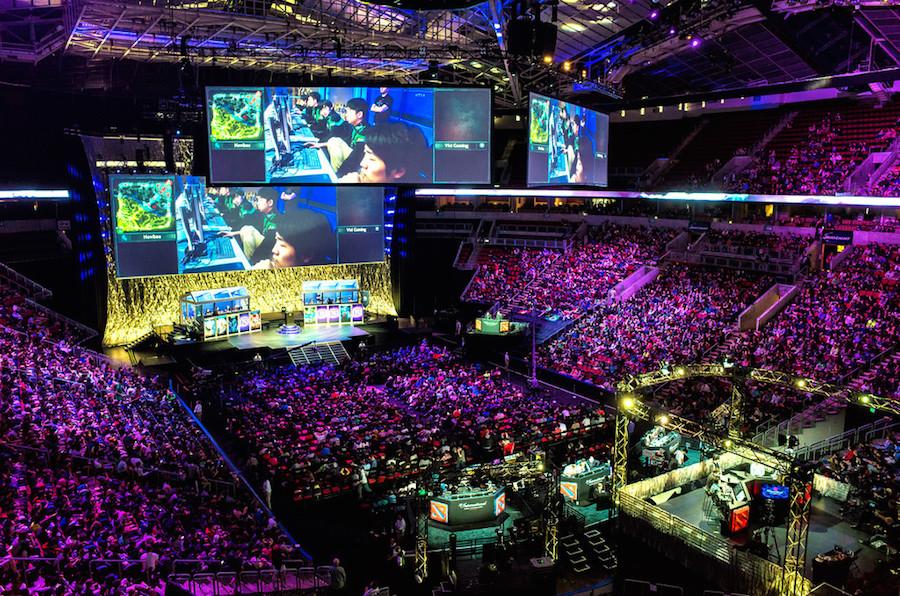Last year, OpenAI proved that its artificial intelligence can win against professional “DOTA 2” players in a 1v1 setting. However, a lot of concessions had to be made to make that happen, including reducing the challenges of the game. This time, the AI is ready to compete in 5v5 matches after training for the equivalent of 180 years in a single day.
In its announcement, OpenAI made it clear that it wants to challenge actual pros during the “DOTA 2” tournament that will be held in August, Quartz reports. This will be a new hurdle for the technology because the matches will be held as is. There will be no restrictions to make things easier for the AI.
Not that it really needs it this time. Apparently, the machine can make over 20,000 moves in over 45 minutes while playing the game. For a title with as much complexity as this MOBA, this was simply necessary.
On that note, the team behind the AI was not even sure if it could actually be scaled to participate in 5v5 matches. After all, it will be five bots working together to take down experienced professionals in the game. In order to prepare these AI units, they were allowed to learn by matching against each other for extended periods of time.
Apparently, one bot even trained for four weeks. It racked up over 5,000 years of game time. The idea behind why this was done was simply to allow the AI to test things out and explore. This was what Greg Brockman, CTO of OpenAI, told Quartz.
“As long as the AI can explore, it will learn, given enough time,” Brockman said.
The CTO also spoke with The Verge to explain what this experiment is meant to accomplish. After all, OpenAI is not an entity that was created to focus solely on “DOTA 2.”
“This an exciting milestone, and it’s really because it’s about transitioning to real-life applications,” Brockman told the publication. “If you’ve got a simulation [of a problem] and you can run it large enough scale, there’s no barrier to what you can do with this.”



 Instagram Outage Disrupts Thousands of U.S. Users
Instagram Outage Disrupts Thousands of U.S. Users  Samsung Electronics Shares Jump on HBM4 Mass Production Report
Samsung Electronics Shares Jump on HBM4 Mass Production Report  Palantir Stock Jumps After Strong Q4 Earnings Beat and Upbeat 2026 Revenue Forecast
Palantir Stock Jumps After Strong Q4 Earnings Beat and Upbeat 2026 Revenue Forecast  SpaceX Pushes for Early Stock Index Inclusion Ahead of Potential Record-Breaking IPO
SpaceX Pushes for Early Stock Index Inclusion Ahead of Potential Record-Breaking IPO  SoftBank and Intel Partner to Develop Next-Generation Memory Chips for AI Data Centers
SoftBank and Intel Partner to Develop Next-Generation Memory Chips for AI Data Centers  Oracle Plans $45–$50 Billion Funding Push in 2026 to Expand Cloud and AI Infrastructure
Oracle Plans $45–$50 Billion Funding Push in 2026 to Expand Cloud and AI Infrastructure  Anthropic Eyes $350 Billion Valuation as AI Funding and Share Sale Accelerate
Anthropic Eyes $350 Billion Valuation as AI Funding and Share Sale Accelerate  Google Cloud and Liberty Global Forge Strategic AI Partnership to Transform European Telecom Services
Google Cloud and Liberty Global Forge Strategic AI Partnership to Transform European Telecom Services  Nvidia CEO Jensen Huang Says AI Investment Boom Is Just Beginning as NVDA Shares Surge
Nvidia CEO Jensen Huang Says AI Investment Boom Is Just Beginning as NVDA Shares Surge  OpenAI Expands Enterprise AI Strategy With Major Hiring Push Ahead of New Business Offering
OpenAI Expands Enterprise AI Strategy With Major Hiring Push Ahead of New Business Offering  Sony Q3 Profit Jumps on Gaming and Image Sensors, Full-Year Outlook Raised
Sony Q3 Profit Jumps on Gaming and Image Sensors, Full-Year Outlook Raised  Nintendo Shares Slide After Earnings Miss Raises Switch 2 Margin Concerns
Nintendo Shares Slide After Earnings Miss Raises Switch 2 Margin Concerns  Tencent Shares Slide After WeChat Restricts YuanBao AI Promotional Links
Tencent Shares Slide After WeChat Restricts YuanBao AI Promotional Links  Nvidia Confirms Major OpenAI Investment Amid AI Funding Race
Nvidia Confirms Major OpenAI Investment Amid AI Funding Race  SoftBank Shares Slide After Arm Earnings Miss Fuels Tech Stock Sell-Off
SoftBank Shares Slide After Arm Earnings Miss Fuels Tech Stock Sell-Off 































